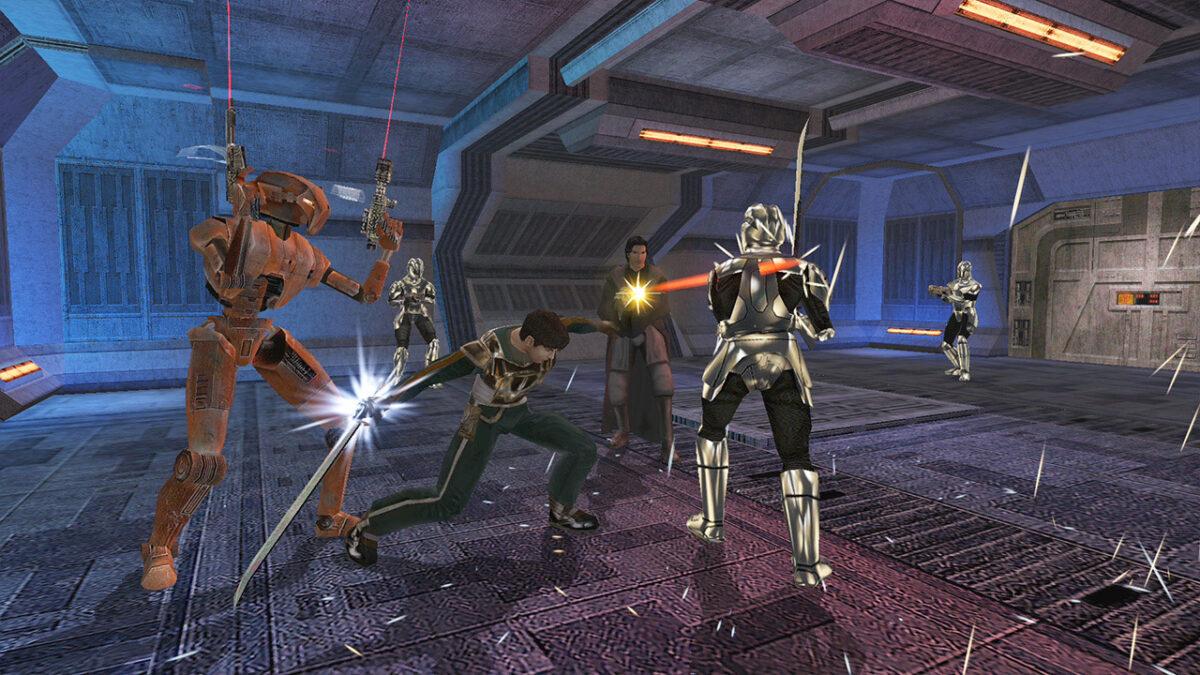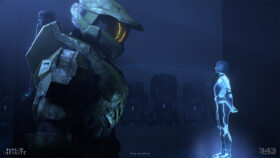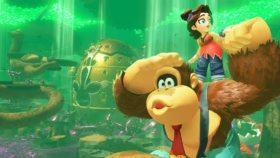I admit it – I grew up dreaming of being a Jedi. I was obsessed with lightsabers, droids, and Death Stars. The first Knights of the Old Republic didn’t change that in the slightest, with it being set in a galaxy even further away, 4000 years before the mask-breathing villain Darth Vader even lived. You could say it was the game I never knew I needed to play; it made me look at Star Wars in a way no other game or movie ever has.
Then came KOTOR II. And oh boy, was it a step in a different direction.
I first played KOTOR II on a beat-up PC during a slow (and unsurprisingly rainy) summer in high school. What started as another Star Wars adventure quickly turned into something far deeper. The Exile’s journey wasn’t about saving the galaxy – it was about rebuilding identity, coping with loss, and facing uncomfortable truths.
And while yes, the game was buggy as hell and unfinished on release, I didn’t care. KOTOR II was messy, but it was brilliant. Its dialogue made me laugh, think, and – at times – genuinely tear up. Even today, that experience remains unmatched. Let me tell you why that is, exactly.
A Game That Cuts Deeper Than Vibroblades
Most RPGs follow a fairly rigid template – collect your squad, fight the bad guys, choose good or evil. But KOTOR II threw a wrench in that structure. It asked harder questions. The Jedi aren’t always right. The Sith aren’t always wrong. And the Force? Maybe it isn’t a gift – maybe it’s a curse.
The writing, largely shaped by Chris Avellone and the team at Obsidian, was the heart of it all. Characters like Kreia and Atton Rand weren’t just companions – they were walking philosophical debates. They constantly challenged you, not just in what you believed, but why you believed it. No morality bar or dialogue wheel could neatly sum up this complexity.
And yet, the game’s systems remained rooted in that classic BioWare formula. You built your party, explored planets, and made choices – but those choices always felt heavier, more intimate. They weren’t just about being “good” or “bad” – they were about what kind of person you were trying to become.
Imperfect, Unfinished – But Still Genius
Let’s be real – KOTOR II launched broken. Entire story threads were cut due to time constraints. Certain endings just…didn’t exist. And don’t get me started on the game’s infamous bugs and crashes. Even hardcore fans had to mod it just to get the full story.
But here’s the thing – none of that ruined the experience. In fact, in some strange way, the rough edges made it feel more human. It was flawed, like the Exile themself. The world was broken. The characters were broken. And yet they kept going. You kept going. There’s something beautiful about that.
Thanks to community patches and restored content mods, modern players can finally see what Obsidian originally envisioned. And while it’s still a bit janky by today’s standards, it’s worth every second. Few RPGs have dared to explore such bleak, thoughtful territory – and even fewer have done it with this much style.
KOTOR II’s Legacy Deserves Respect
It’s strange to me that KOTOR II often gets overlooked in Star Wars conversations. Maybe it’s because it doesn’t end in triumph. Maybe it’s because it dares to ask whether the Force is even worth trusting. But those are exactly the reasons I keep coming back to it – yes, at least once a year.
This wasn’t just a sequel – it was a challenge to the entire Star Wars mythos. It took familiar elements and deconstructed them without losing their magic. It’s a game that respects its audience enough to let them wrestle with uncomfortable ideas.
And despite its age, KOTOR II still resonates. In a time where modern RPGs often feel safe and sanitized, this one still bites. It’s bitter. It’s weird. It’s bold. And that’s why it sticks with you long after the credits roll. I can hear Kreia’s voice long after it first reverberated through my old Logitech speakers, scolding me for being the goody-two-shoes I tried to be.
Where every other game would shower you with respect, money, and a pat on the back, Knights of the Old Republic II decidedly subverted expectations by being a bit deeper in the way its story is told – and damn, do I wish I could experience it for the first time again.
Final Take: One of the Greatest Stories Ever Told in (STAR WARS) Games
Knights of the Old Republic II is far from perfect. It stumbles, it crashes, it meanders. But what it does better than almost any other RPG is make you feel like your choices matter – not because of a meter or a stat, but because of the emotional weight behind them.
It’s one of the few games that genuinely made me laugh, cry, and question myself. Its characters, its world, its message – they all linger, years later. It’s not just a Star Wars game. It’s a meditation on morality, identity, and consequence.
If you’ve never played it – or if you’ve only ever heard of its flaws – go back. Mod it, fix it, dive in. Because once you do, you’ll understand why this rough little gem is still one of the most rewarding RPGs ever made.






